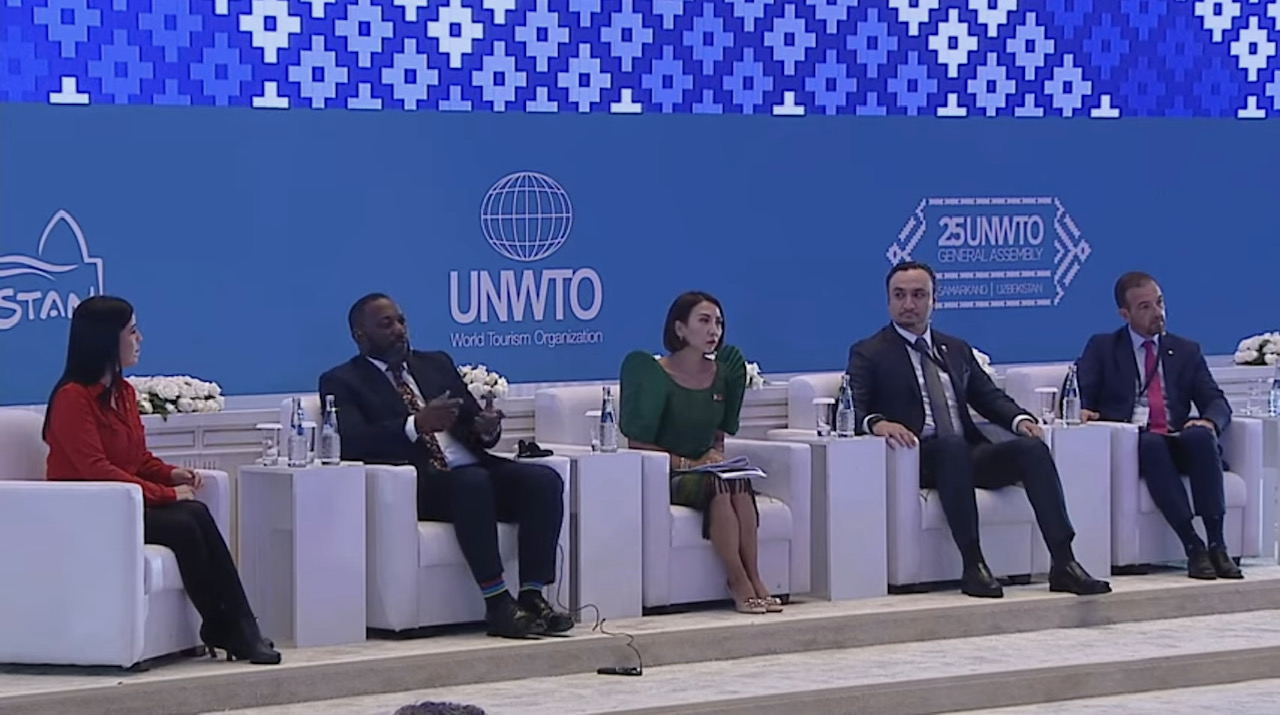
GLOBAL tourism leaders underscored the need to diversify investments in the tourism sector, and ensure these funds don’t go to a few well-established destinations.
Opening the United Nations World Tourism Organization (UNWTO) Investment Forum on October 18, UNWTO Secretary-General Zurab Pololikashvili said, “Investing in tourism means investing in jobs and opportunity. UNWTO is committed to attracting the right form of investments into tourism. To guard against future shocks, we need to become a more diverse and resilient sector.”
The Investment Forum, held in Samarkand, Uzbekistan a day before the UNWTO 25th General Assembly, brought together tourism ministers of Albania, Colombia, Kingdom of Morocco, Maldives, Peru, and Spain, along with leading private sector experts and representatives of the global investment community to reflect on key challenges and opportunities.
In a news statement, the UNWTO said the panelists highlighted the key priorities of governments in national investment policymaking in the coming years to support the growing and changing investment needs of the tourism sector, while recognizing the vital need for both traditional and non-traditional investments in order to build greater sustainability, secure long-term resilience of the sector and to foster positive change. Furthermore, it was agreed that “by chaneling venture capital investments and providing crucial support structures is one of the most effective ways to unlock the potential of startups and foster an innovative and entrepreneur mindset.”
FDI needed to speed up innovation, support startups
UNWTO Executive Director Natalia Bayona said, from 2018 to 2022, almost 2,415 projects were announced, representing a total capital investment of US$175.5 billion.
She also stressed the crucial role of capital investments to accelerate innovation, and support startups as venture capital funding in travel and tourism reached $48 billion in the same period, proving the tourism sector’s resilience.
She noted the rapidly growing role of public provident funds and sovereign wealth funds, which has invested around $20 billion in the hotel and leisure industry since 2016.
According to a recent joint study by the UNWTO and fDI Intelligence, the Philippines tourism sector benefited from a capital investment of $11.1 billion, which funded 26 projects from 2018 to 2022. (See, “PHL ranks 3rd global tourism FDI recipient in ’18-’22,” in the BusinessMirror, October 16, 2023.)
Meanwhile, the Department of Tourism (DOT) cited its unique role in bringing the private sector and the academe together to focus on tourism education, enhancing the Filipinos’ skills in the hospitality business that makes them highly desirable abroad.
Global Education Forum
Speaking as a panelist during the Global Education Forum on the sidelines of UNWTO 25th General Assembly on October 19, Tourism Secretary Christina Garcia Frasco said, “Tourism in the Philippines employs over 5.35 million Filipinos accounting for over 11.4 percent of our entire national employment and therefore, the focus of our government has been to ensure that at every level of education—from basic education, technical vocational as well as higher education, there are interventions that would ensure quality tourism education.”
She explained, “The Philippine government is governed by the Philippine Tourism Human Capital Development Plan, which lays down the strategy of convergence among government agencies to ensure that the approach towards tourism education is not only theoretical but also practical. And the role of the [DOT] has been to be the bridge between the academe and the industry.” She noted the multipronged aproach of tourism education in the Philippines through the Department of Education, the Technical Education and Skills Development Authority, and the Commission on Higher Education.
“What the DOT does is to bridge all of these departments with the Tourism Industry Board Foundation, which is a composite of various associations in the entire tourism value chain composed of tour operators, travel agencies, hotel owners and operators, even restaurateurs and the like, so that the curriculum of every level of tourism education continues to be updated to correspond to global trends and continues to apply the concept of innovation especially in response to the changing needs of the consumer,” said Frasco.
